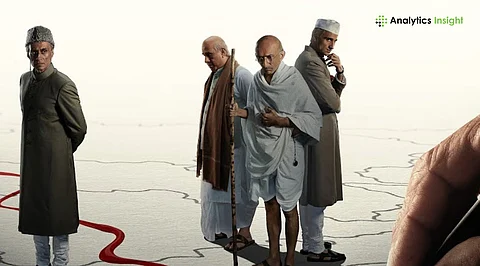In the competitive landscape of Silicon Valley, Jensen Huang, CEO of Nvidia Corp., has emerged as a pivotal figure in the artificial intelligence sector. Under his leadership, Nvidia has achieved a remarkable market capitalization exceeding $5 trillion. This success is attributed not only to technological advancements but also to the foundational lessons imparted by his mother, Lo Tsai-hsiu, who instilled in him a belief in positivity and encouragement.
Huang’s upbringing in a middle-class family in Taipei, Taiwan, profoundly shaped his outlook. His mother, a schoolteacher, emphasized the importance of resilience and positive reinforcement. When Huang faced challenges as a child, she encouraged him by saying, “You’re doing great, keep going.” This approach fostered a mindset of persistence that has influenced his leadership style at Nvidia.
From Childhood Lessons to Corporate Culture
Huang’s family frequently relocated due to his father’s career in chemical engineering, moving from Taiwan to Thailand and eventually to the United States. During these transitions, his mother developed a unique educational practice, teaching her sons ten new English words from the dictionary each day. This method not only enhanced their language skills but also instilled a habit of incremental learning. As he matured, these experiences helped Huang thrive in uncertain environments, a trait evident in Nvidia’s transition from a graphics chip manufacturer to a leader in AI technology.
As an adult, Huang’s leadership mirrors the encouragement he received from his mother. Eschewing traditional management methods, he prefers open forums for discussion, fostering an environment where ideas can flourish. Huang manages 60 direct reports without individual check-ins, focusing instead on collective progress and innovation. This approach reflects his mother’s teachings, creating a workplace culture that motivates employees to explore new boundaries without the fear of failure.
A Legacy of Family and Innovation
Huang’s influence extends beyond his personal philosophy; it is also evident in Nvidia’s structure. His children, Madison and Spencer Huang, hold executive positions within the company, with Madison leading the Omniverse division and Spencer overseeing AI model development. This familial involvement highlights how personal values can shape business dynamics, blending legacy with cutting-edge innovation.
Recent events have showcased Huang’s relational leadership style. During a dinner with the CEO of TSMC, he emphasized their partnership, stating, “No TSMC, no Nvidia,” which underscores the importance of collaboration in achieving technological advancements. Huang’s commitment to prioritizing customer service over internal politics is echoed in his philosophy that “the mission is the boss,” demonstrating his focus on the greater good.
Huang’s optimistic predictions about the future of AI further reflect his mother’s influence. He recently claimed that “AI will create more millionaires in the next five years than the internet did in twenty.” This forward-thinking perspective encourages a culture of learning and exploration at Nvidia, where Huang reportedly spends 90% of his time teaching rather than in meetings. His approach fosters an agile environment even within a massive corporation valued at $3.4 trillion.
As geopolitical challenges arise, Huang advocates for the United States to maintain its leadership in AI through innovation. He counters narratives of inevitable dominance by other nations, emphasizing that talent and ecosystem strength are crucial to sustaining a competitive edge. His balanced perspective reflects the resilience he learned during his family’s migrations, showcasing his commitment to fostering a robust AI industry.
Huang’s vision for AI as a new industrial revolution further emphasizes his mother’s teachings. In a March 2024 address, he encouraged companies to adopt AI-driven approaches, which he describes as transforming computers into “factories of intelligence.” This outlook not only positions Nvidia at the forefront of technological advancement but also illustrates how encouragement can drive significant change.
Beyond Nvidia, Huang’s leadership philosophy provides valuable lessons for industry leaders. His focus on mission-driven decisions and strategic sacrifices resonates with both students and executives. Recent recognitions, such as the Stephen Hawking Fellowship at Cambridge University, underscore his impact on the tech industry.
Huang’s journey from his mother’s simple dictionary lessons to leading one of the world’s most valuable companies exemplifies the lasting impact of maternal guidance. His story illustrates that effective leadership extends beyond vision; it is about nurturing potential and encouraging growth. As the tech landscape evolves, Huang’s approach serves as a reminder that encouragement can indeed build enduring legacies in the business world.







